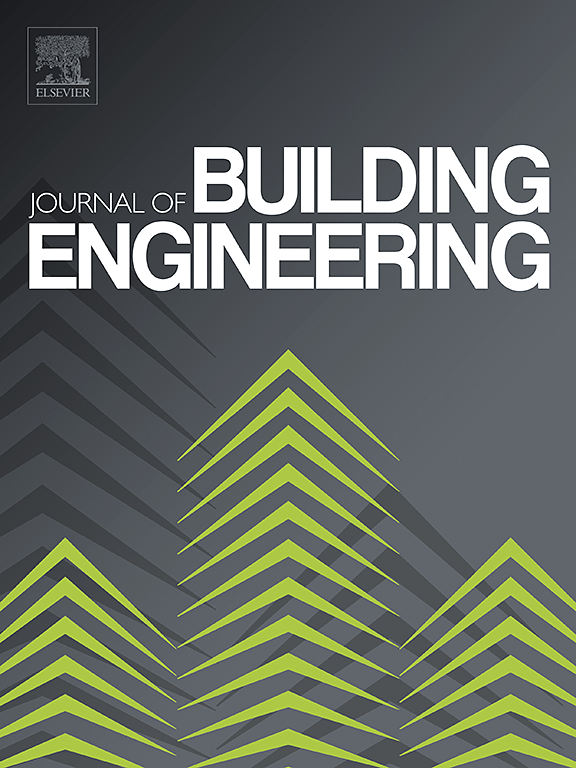An updated multi-criteria decision-making method for the sustainable renovation of buildings including environmental, economic and social life-cycle metrics
IF 6.7
2区 工程技术
Q1 CONSTRUCTION & BUILDING TECHNOLOGY
引用次数: 0
Abstract
The ambitious targets of carbon emission reduction set worldwide for the coming years entail the commitment of structural engineers towards the sustainable renovation of existing buildings. The life cycle thinking (LCT) approach offers a holistic perspective for the design of sustainable retrofitting strategies. It envisages the reduction of the environmental impact at all building life cycle phases, while also addressing economic and social issues. Multi-criteria decision-making (MCDM) approaches support the choice of optimal retrofitting solutions, thus being relevant tools for boosting the actual adoption of LCT in current practices. In this study, a previously proposed MCDM approach is enriched with additional LCT-inspired decision parameters (module D beyond-life impacts, environmental payback period, invasiveness), and is then scrutinised and discussed through its application to a case-study building. Four integrated retrofitting scenarios are investigated using state-of-art seismic loss and energy performance assessment methods, including four different types of exoskeletons, made of timber, steel, and concrete. The end-to-end integrated assessment shows that the inclusion of additional LCT-inspired decision criteria effectively favours LCT-based retrofitting interventions over more traditional ones.
用于建筑物可持续翻新的最新多标准决策方法,包括环境、经济和社会生命周期指标
未来几年,全世界都要实现宏伟的碳减排目标,这就要求结构工程师致力于对现有建筑进行可持续改造。生命周期思维(LCT)方法为可持续改造战略的设计提供了一个整体视角。它设想在建筑生命周期的各个阶段减少对环境的影响,同时解决经济和社会问题。多标准决策(MCDM)方法支持选择最佳改造方案,因此是促进在当前实践中实际采用 LCT 的相关工具。在本研究中,先前提出的 MCDM 方法增加了受 LCT 启发的决策参数(模块 D 的寿命期后影响、环境投资回收期、侵入性),并通过将其应用到案例研究建筑中进行了仔细研究和讨论。采用最先进的地震损失和能效评估方法,对四种综合改造方案进行了研究,包括四种不同类型的外骨骼(由木材、钢材和混凝土制成)。端到端综合评估结果表明,纳入额外的 LCT 启发决策标准后,基于 LCT 的改造干预措施比更传统的干预措施更有效。
本文章由计算机程序翻译,如有差异,请以英文原文为准。
求助全文
约1分钟内获得全文
求助全文
来源期刊

Journal of building engineering
Engineering-Civil and Structural Engineering
CiteScore
10.00
自引率
12.50%
发文量
1901
审稿时长
35 days
期刊介绍:
The Journal of Building Engineering is an interdisciplinary journal that covers all aspects of science and technology concerned with the whole life cycle of the built environment; from the design phase through to construction, operation, performance, maintenance and its deterioration.
 求助内容:
求助内容: 应助结果提醒方式:
应助结果提醒方式:


